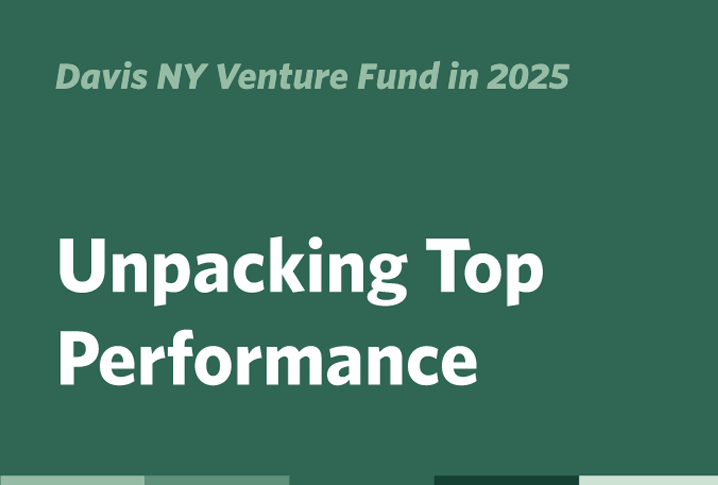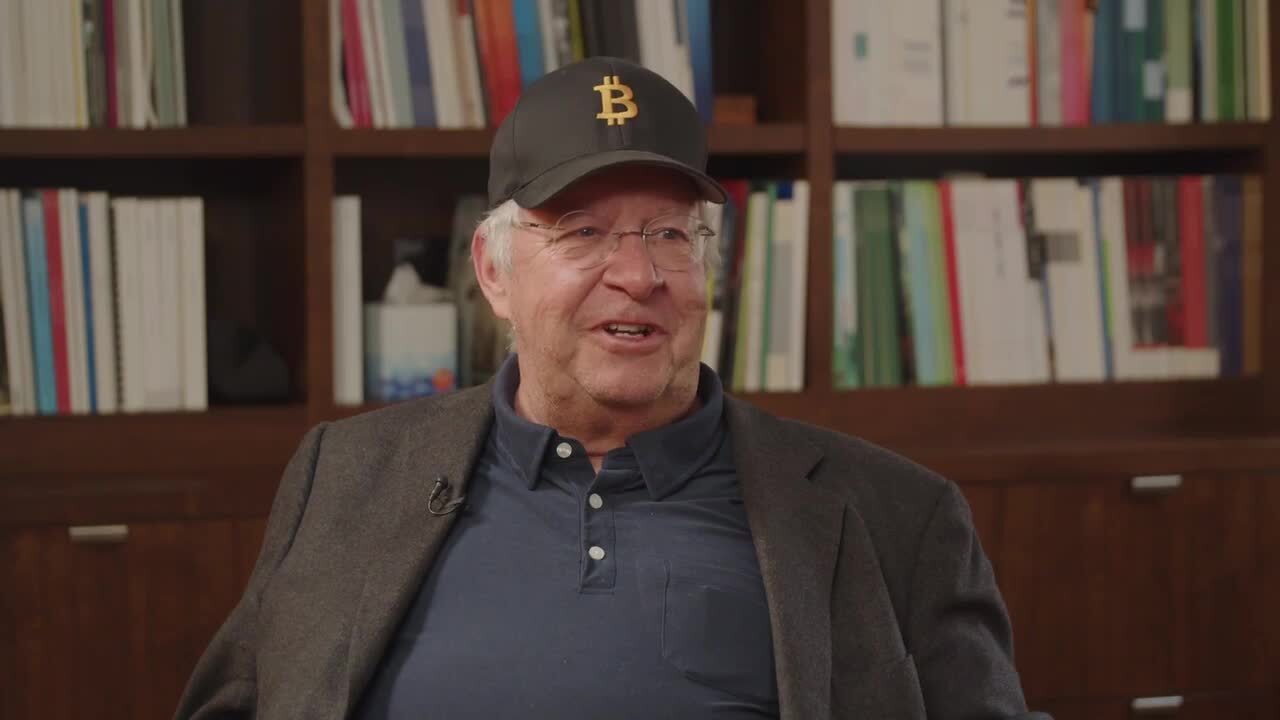- What investors need to focus on through 2024
- Why the fund’s attractive growth and low valuations position it well for a market in transition
Transcript
| Speaker | Timestamp | Statement |
|---|---|---|
| Chris Davis | I want to lay out, really at the top here, just sort of the key considerations as we think about this present environment. And the most important one really is a cognition of what happened in March of 2022, which was the free money era came to a final long overdue and abrupt ending. And we had long been anticipating this. We had been early. We continued to stick to a discipline that was based on the present value in cash flows. And, of course, that sort of discipline, which is common sense, does not work when the discount rate is zero. And so we were out of sync, but the ending of that we think is permanent. That doesn't mean that rates will only move up from here. Doesn't mean that rates can't move down from here, but it means that the era of zero money is definitively over and about time. The hangover will be long. The transition will be rough. I think you're still going to see real disruptions as they roll through fields like private equity, commercial real estate, and others. And we'll talk about some of those. Second big key consideration in this environment is, my God, don't you think it's about time we all stopped with the short-term forecast? I listened this morning to somebody being interviewed talking about when the Fed... next Fed moved down did it get pushed into 2025 if it's still going to be in 2024. It is going to be one move or two? What's going to happen in Ukraine? What's going to happen in the Middle East? I mean, you would think if there was one thing we all should have learned in the last 18 months, it's just it's so foolish to make decisions based on short-term forecasts. You can't predict. You have to prepare. You have to prepare. So we're going to give some contextual remarks, but we do think this continual desire to play the interest rate speculation game that when is the correction? When is the recession? How's the election going to turn out? All very, very important topics, all inherently unknowable. You better be prepared for uncertainty. That's the environment we've been in. It's the environment we're going to be in. The most risk is where you feel the safest. I mean, in a world where the market's made good progress, who the hell would've thought that you could have some nice consumer staples like Estee Lauder and others or Diageo underperforming by 20, 30% at least having negative returns. Where people have felt safe is often where they're taking the highest risk and, generally, they feel safe in what hasn't gone down. And our view is that is often where there's complacency and overvaluation. And so we do think there are aspects of this market that remain overvalued simply because people feel safe because that stuff hasn't gone down. You could look at past bubbles bursting in terms of some of the hyper-growth stocks. You can look at some of the consumer staples. You can look at the bankruptcy of some very prominent utilities over the last 10 years, and yet, still, people feel safe in the stuff that hasn't gone down. And we think there's a lot of risk in that today as well. And I would say, alternatively, too, often, the best opportunities where you feel the most risk, right, in a world where you had two major banks go... be taken into receivership in a banking crisis, you wouldn't have thought that Capital One would be up 70%. 70%. So it's really something to think about. That was not a company where people felt safe, and yet there was great opportunity rather than great risk. Corrections are the rule, not the exception, right. You get a 20% correction every 3.5 years. People say it over and over. And then, when the market is down 10% from its peak, people are wondering what the hell is going on instead of thinking of it as an inevitable but unpleasant part of the landscape. Well, I mentioned this with the banks. Investing is the art of the specific. So much of our research is based on a company-by-company bottom-up basis. And again, we think this game of sector rotation and what's the hot part of the market, these crazy groupings. You go back to BRICKs, and you go back to FANG and MAMA and Magnificent 7. People create categories and swing their money around in and out of these categories. But ultimately, what matters is at the company-specific level. I mentioned some examples with financial stocks. We'll have other examples as we continue, but it's very dangerous. This days of cheap beta we think those are behind us. We think the days of that long momentum play are behind us. Again, as I said, in a year, like this last year, you wouldn't have thought we would have returned, I don't know, quite double the index in the last 12 months but... and did so with a portfolio that doesn't have any hot theme in it particularly, but where it was a company-by-company decision. Fundamentals matter. I mentioned the unpredictability, the uncertainty in the environment, the disruptions from the unwinding of this free money era. Fundamentals matter. They always have mattered. They just aren't always priced as if they matter. We think about the balance sheet strength, the durability, the cash production upfront, the expense discipline. The best memo I could commend to you is to read Mark Zuckerberg's memo. I think it was from 2022. Maybe it was early 2023. But just about the importance of expense discipline in allowing the company to be resilient in a time of change. And that was one of the great memos for putting a flag in the ground and saying, "The end of free money is over. Money matters, expenses matter, profits matter." So we think those fundamentals are key and, as I said, to have almost a 38, 40% return in a world where financials have been challenged, where we didn't own a lot of the magnificent stocks that were the hottest, and so on, we feel it's been a bit of a validation for having stuck with our discipline through this period, and God, are we grateful to be able to deliver that to you, our most important advisors and our most important fund. So thank you. After a year like that, the obvious question is, "Well, did we miss it? Is it too late?" Usually, if you have those kinds of returns, you expect a lot of the portfolio to be in bloom at once and, therefore, for the portfolio to be sort of overvalued. Look at this. I mean, isn't this the amazing. When we think about the art of the specific, we own 40 companies, that means there's more than 90% of the market that we have rejected, we've rejected. And by being so specific, by being willing to look different, we build a portfolio at a multiple. It's 35% or so lower, lower than the market, and trades at a level that is incredibly reasonable even relative to history. Not just relative to the market today, but relative to long-term averages. So we love that valuation, and yet we haven't given up growth. We call this a value investor's dream to have a company so cheap, and yet companies that have grown where we haven't had to sacrifice growth and buy cigar butts. Instead, we've been able to stick with this enormous quality. |
Related Videos
Davis NY Venture Fund Strong Results in 2025
PM Chris Davis takes a closer look at what helped the Davis NY Venture Fund deliver strong results in 2025
Stewardship, Patience and Going Against the Crowd (3:59)
Chris Davis and Bill Miller reflect on 40 years of friendship and how temperament has impacted their respective investment styles
Share this Video
Click here for current fund holdings: DNYVF


